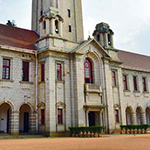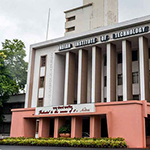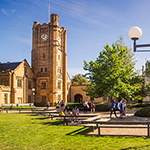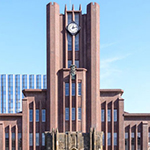Dual- and joint-awards
Our dual- and joint- awards represent dynamic partnerships between The University of Manchester and other degree-awarding bodies across the globe.
A dual- or joint-award provides the opportunity to work with leading academics across two institutions, benefiting from the research expertise and specialist facilities at both. Allowing researchers to experience a different country and gain a global perspective, a dual- or joint-award at Manchester is a unique and rewarding postgraduate research opportunity.
The University of Manchester currently offers three types of cross-institutional programmes:
- Split-site award: a postgraduate research degree studied across two institutions, only one of which (The University of Manchester) is a degree awarding institution. Researchers who complete a split-site award programme receive one degree certificate from Manchester.
- Dual-award: a postgraduate research degree studied across two institutions, both of which are degree awarding. Researchers who complete a dual-award programme receive two degree certificates (one from each institution).
- Joint-award: a postgraduate research degree studied across two institutions, both of which are degree awarding. Researchers who complete a joint-award programme receive one degree certificate from one of the two institutions.
We have dual- and joint-awards in partnership with the University of Melbourne in Australia, the Indian Institute of Technology Kharagpur, the Indian Institute of Science Bangalore, and the University of Tokyo in Japan.
Award details
-

Joint-award with IISc Bangalore
The joint-award programme builds upon the strategic partnership that has been developed between The University of Manchester and IISc Bangalore.
Read about the joint-award with IISc Bangalore
-

Dual-award with IIT Kharagpur
Carry out research on one of a range of available science and engineering PhD projects and spend time in India through our four-year dual-award.
Read about the dual-award with IIT Kharagpur
-

Dual-award with The University of Melbourne
Engage in research in one of a range of available science and engineering PhD projects and spend at least 12 months in Australia with our three-and-half-year dual-award PhD.
Read about the dual-award with The University of Melbourne
-

Dual-award with the University of Tokyo
Benefit from the expertise, facilities and infrastructure of two globally renowned institutions with our dual-award with the University of Tokyo.
Read about the dual-award the University of Tokyo
-

A*STAR split-site award
This four-year funded PhD programme enables postgraduate researchers to spend two years studying at Manchester and two years in Singapore at the A*STAR Research Institute.
Read about the A*STAR split-site award
Application deadlines
| Dual / Joint Award Programme | Applications open | Application deadline |
|---|---|---|
| Joint-Award with IISc Bangalore | Late summer / early autumn 2024 | To be confirmed |
| Dual-Award with IIT Kharagpur | Late summer / early autumn 2024 | To be confirmed |
| Dual-Award with the University of Melbourne | To be confirmed | To be confirmed |
| Dual-Award with the University of Tokyo | To be confirmed | To be confirmed |
| PhD Programme with A*STAR Institutes, Singapore | Late summer / early autumn 2024 | To be confirmed |





